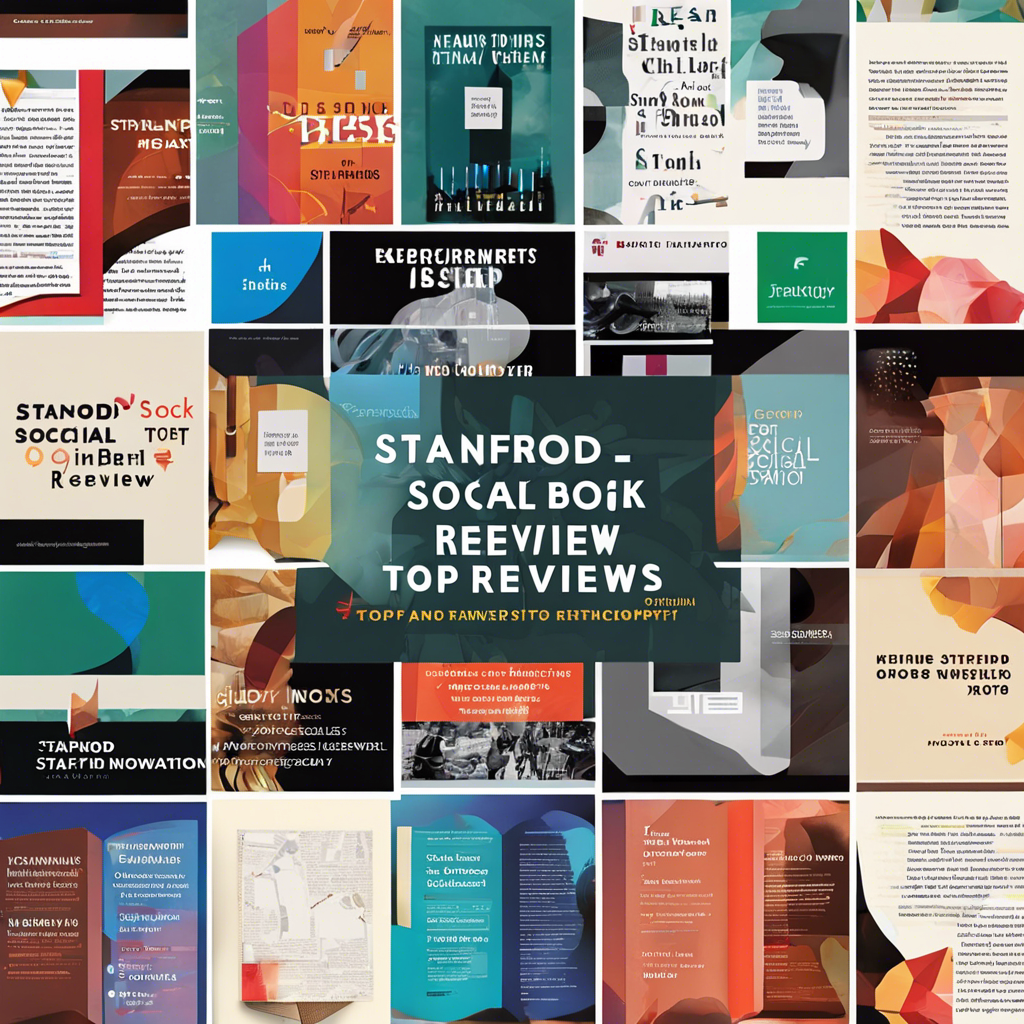A compilation of thought-provoking insights and groundbreaking ideas from the world of social innovation
In a rapidly changing world, the pursuit of social innovation has become more crucial than ever. Stanford Social Innovation Review (SSIR) has been at the forefront of exploring and analyzing the latest ideas, research, and practices in this field. As we delve into the collection of SSIR’s most popular book reviews and excerpts published in 2023, we uncover a wealth of knowledge and inspiration that can guide us toward a more equitable and sustainable future.
The Future of the Responsible Company: What We’ve Learned from Patagonia’s First 50 Years by Vincent Stanley with Yvon Chouinard
Patagonia, the iconic outdoor apparel company, has long been admired for its commitment to environmental and social responsibility. In this book, Vincent Stanley and Yvon Chouinard, co-founders of Patagonia, reflect on the company’s journey and the lessons they have learned along the way. They emphasize the importance of reinvesting profits, supporting grassroots environmental organizations, and creating a model for responsible business practices.
Fragile Neighborhoods: Repairing American Society, One Zip Code at a Time by Seth D. Kaplan
Seth D. Kaplan’s book delves into the challenges faced by neighborhoods across the United States, where social bonds have weakened over time. Kaplan argues that top-down approaches are not effective in addressing these issues and advocates for a neighborhood-by-neighborhood approach. By empowering local communities and nurturing social systems, Kaplan believes we can build stronger and more resilient neighborhoods.
Breaking Free: The Lie of Equality and the Feminist Fight for Freedom by Marcie Bianco
Marcie Bianco’s book challenges the notion of equality and explores the feminist fight for freedom. Bianco argues that true freedom goes beyond individual mobility and access; it involves creating movements that foster new relationships, collaborations, and coalitions. By embracing the power of ideas and collective action, Bianco believes we can bring about meaningful change and dismantle oppressive systems.
The Imperfectionists: Strategic Mindsets for Uncertain Times by Robert McLean & Charles Conn
Robert McLean and Charles Conn’s book explores the concept of imperfection in the context of strategic thinking. They argue that organizations should embrace diversity and tap into collective intelligence to solve complex problems. By creating an ecosystem of smart and diverse individuals, organizations can achieve their goals more effectively and adapt to uncertain times.
The Slow Lane: Why Quick Fixes Fail and How to Achieve Real Change by Sascha Haselmayer
Sascha Haselmayer’s book takes a deep dive into the slow-lane approach to change. Drawing from over 100 slow-lane movements, Haselmayer identifies five principles that underpin this approach: holding the urgency, listening broadly, sharing agency, nurturing curiosity, and embracing technology as an enabler. By practicing these principles, individuals and communities can achieve sustainable and meaningful change.
Rich White Men: What It Takes to Uproot the Old Boys’ Club and Transform America by Garrett Neiman
Garrett Neiman’s book sheds light on the compounding unearned advantages that perpetuate inequality in society. He explores how small advantages, received by those with privileged identities, can lead to significant disparities in opportunities and outcomes. Neiman calls for a transformation of the old boys’ club and the dismantling of systems that perpetuate these advantages.
Understanding Organizations … Finally! by Henry Mintzberg
Henry Mintzberg’s book challenges the one-size-fits-all approach to managing and changing organizations. He emphasizes the importance of understanding the unique characteristics of each organization and tailoring strategies accordingly. Mintzberg argues that managers must account for structural differences and have a deep knowledge of their own organization and the one they seek to learn from.
Beyond Disruption: Innovate and Achieve Growth without Displacing Industries, Companies, or Jobs by W. Chan Kim & Renée Mauborgne
W. Chan Kim and Renée Mauborgne’s book presents an alternative approach to innovation that goes beyond disruptive creation. They introduce the concept of nondisruptive creation, which involves creating new markets outside the boundaries of existing industries. This positive-sum approach to innovation offers a complementary perspective to disruption and opens up new possibilities for growth.
From Generosity to Justice: A New Gospel of Wealth by Darren Walker
Darren Walker’s book challenges the traditional notion of philanthropy and calls for a shift from generosity to justice. He highlights the importance of afflicting the comfortable, which involves recognizing and rectifying the deep inequalities that perpetuate privilege. Walker urges individuals and institutions to confront their own complicity and work towards systemic change.
Conclusion:
The collection of book reviews and excerpts from Stanford Social Innovation Review provides a glimpse into the diverse and thought-provoking ideas shaping the field of social innovation. From responsible business practices to neighborhood revitalization, from feminist movements to reimagining organizational strategies, these books offer valuable insights and practical approaches to creating positive change. As we navigate the complexities of our world, these ideas serve as guideposts, inspiring us to think critically, challenge the status quo, and work towards a more just and sustainable future.











